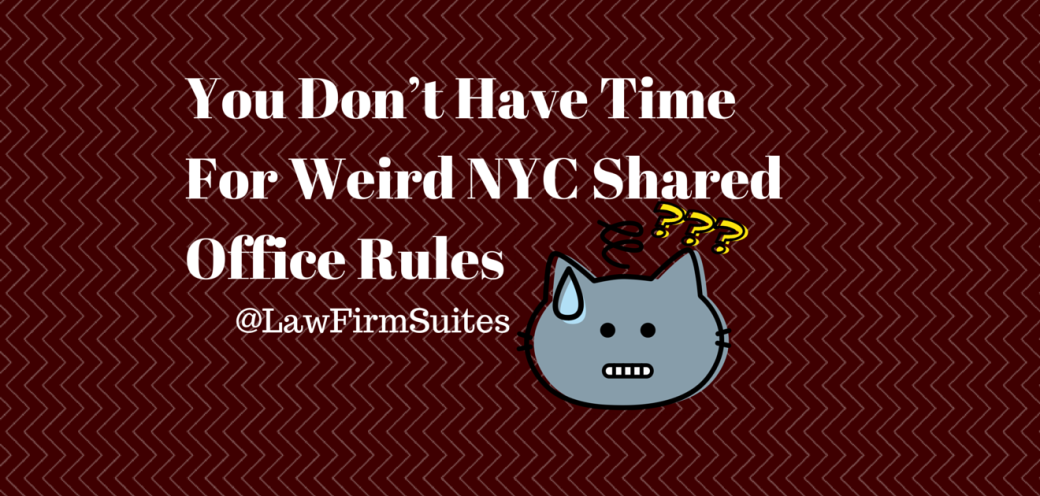If low costs are your guiding light in searching for an NYC shared office space, BEWARE. Sometimes a crazy set of rules comes with that space.
Searching for an office in New York City is already a difficult feat. Options are plentiful, but finding the right fit can be challenging.
Office sublets are likely the most common choice among attorneys who need a space immediately for low cost.
Commercial leases are the biggest commitment one can make when finding an office: both time and finances play a deep role. Someone who isn’t as established or works on a smaller scale may not be able to acquire one of these larges leases for their firm while a bigger firm might have the capacity to do so.
Commercial lease just are not logical for a solo or small firm because the need for space may not be immediate.
Even if your NYC sublet office space is cheap at first, there may be unexpected occurrences that end up making it more expensive than what it should be to sublet the space.
Those weird rules will NOT help you out in any way.
Running your own space is a feeling unlike any other for anyone building a space because it means that you finally get to establish yourself and work to build your credibility. In shared office environments like Law Firm Suites, a few common sense rules may exist so respect is given to other tenants, but for the most part you can do what you want.
When a firm advertises its own space, it is often a telling sign that they had to do it as opposed to wanting to do it. They will likely keep their rules in place which doesn’t mean a anything good for your firm. Some crazy rules witnessed are:
- You must have cherry wood furnishings purchased from Room and Board.
- The cost of paper is split between all lawyers whether you use the copy machine or not.
- You can use the conference room any time you want, unless your landlord’s firm needs it; then you’re on your own.
Wacky rules are not worth your time and energy. There is never meant to be any type of benefit for your firm and they won’t make any difference if they do not exist.
Although wacky rules is bad, having no rules at all will not be good either.
“No rules” will be your worst nightmare.
Having no rules may sound appealing at first, but it will eventually work against your firm. You cannot complain if the other firm is loud or in some way disruptive to your work. You have to bite your tongue and take it.
You know what your firm needs to produce results and it’s almost guaranteed that you won’t enjoy the “no rules” environment.


